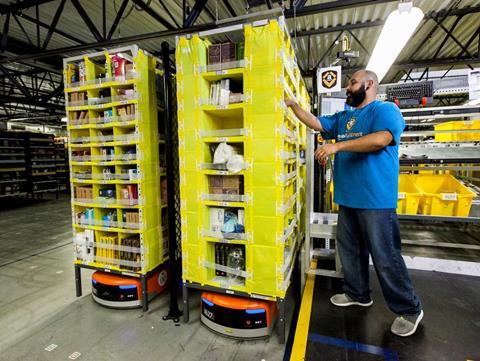
Prime Day was once again the largest shopping event in Amazon history with more than 175m items ordered.
Over the two days of Prime Day, on July 15 and 16, sales surpassed the previous Black Friday and Cyber Monday combined.
Prime members purchased more than 175m million items throughout the event with top sellers Echo Dot, Fire TV Stick with Alexa Voice Remote, and Fire TV Stick 4K with Alexa Voice Remote.
“We want to thank Prime members all around the world,” said Jeff Bezos, Amazon founder and CEO. “Members purchased millions of Alexa-enabled devices, received tens of millions of dollars in savings by shopping from Whole Foods Market and bought more than $2 billion of products from independent small and medium-sized businesses. Huge thank you to Amazonians everywhere who made this day possible for customers.”
The record sales would not be possible without a seamless logistics operation behind the scenes and Mohit Paul, SVP EMEA at software provider BluJay Solutions, highlighted the logistical challenges faced when catering for Prime Day.
“More than 100m products will be on special offers during Amazon Prime Day, and the volume of deliveries passing through the logistics network in this week alone is expected to create an unusually peaked season for all the supply chain," he said.
“High volume of transactions in such a short duration, coupled with intense pressure from consumer expectations, mean that Prime Day can be ‘make or break’ for small to medium businesses.
“With such a challenge on their hands, delivery businesses must harness opportunities for collaboration and streamlined workflow. Otherwise, Prime Day can seem like a risk to revenue rather than an opportunity to profit.
“Supply chain inefficiencies cost UK businesses trading abroad approximately £1.5 bn per year. With the right multi-carrier parcel technology solution, businesses can respond to changing shipping demands seamlessly, enabling them to easily scale and increase shipping volume for peaks such as this. This technology also provides visibility and helps prevent friction in the supply chain by reducing error rates and improving parcel shipping times.
“Prime Day has become such a big event in the retail calendar that some businesses are feeling pressured to get involved, or risk missing out. But without an efficient and streamlined logistics operation, they may struggle to deliver the fast, convenient delivery modern consumers expect.”
Despite the record sales, the two-day sales bonanza did not go off entirely without a hitch as Amazon workers from across the world staging protests over pay and conditions. Pilots flying for Amazon Air also joined in to express their solidarity with warehouse workers.















